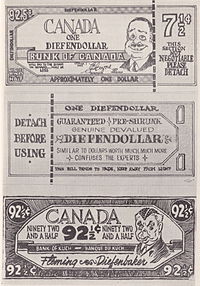| Main page | Showcase | Project |
Introduction
Conservatism is a cultural, social, and political philosophy and ideology, which seeks to promote and preserve traditional institutions, customs, and values. The central tenets of conservatism may vary in relation to the culture and civilisation in which it appears. In Western culture, depending on the particular nation, conservatives seek to promote and preserve a range of institutions, such as the nuclear family, organised religion, the military, the nation-state, property rights, rule of law, aristocracy, and monarchy. Conservatives tend to favour institutions and practices that enhance social order and historical continuity.
Edmund Burke, an 18th-century Anglo-Irish statesman who opposed the French Revolution but supported the American Revolution, is credited as one of the forefathers of conservative thought in the 1790s along with Savoyard statesman Joseph de Maistre. The first established use of the term in a political context originated in 1818 with François-René de Chateaubriand during the period of Bourbon Restoration that sought to roll back the policies of the French Revolution and establish social order.
Conservatism has varied considerably as it has adapted itself to existing traditions and national cultures. Thus, conservatives from different parts of the world, each upholding their respective traditions, may disagree on a wide range of issues. One of the three major ideologies along with liberalism and socialism, conservatism is the dominant ideology in many nations across the world, including Hungary, Iran, Israel, Japan, Poland, Russia, and South Korea. Historically associated with right-wing politics, the term has been used to describe a wide range of views. Conservatism may be either libertarian or authoritarian, populist or elitist, progressive or reactionary, moderate or extreme. (Full article...)
Selected article
He is mainly remembered for his support of the cause of the American Revolutionaries, and for his later opposition to the French Revolution. The latter led to his becoming the leading figure within the conservative faction of the Whig party, which he dubbed the "Old Whigs", in opposition to the pro–French Revolution "New Whigs", led by Charles James Fox.
Burke was praised by both conservatives and liberals in the 19th century. Since the 20th century, he has generally been viewed as the philosophical founder of modern Conservatism, as well as a representative of classical liberalism.
Selected quote
Reversing Britain’s economic decline was such a huge and painful undertaking that, at least until the later years, the economy had to come first.
In fact, though flawed in some respects, the speech with its emphasis on remoralising society and on strengthening the family, deserves re-reading.
It does not though, reveal much about his essential philosophy, which with Keith — as with most professional politicians — remained below the surface.
The kind of Conservatism which he and I — though coming from very different backgrounds — favoured would be best described as "liberal", in the old-fashioned sense. And I mean the liberalism of Mr Gladstone not of the latter day collectivists.
That is to say, we placed far greater confidence in individuals, families, businesses and neighbourhoods than in the State.
— Margaret Thatcher, Keith Joseph Memorial Lecture ("Liberty and Limited Government"), 11 January 1996
Selected image
An economic downturn was beginning in Canada by 1958. By mid-1961, differences in monetary policy led to open conflict with Bank of Canada Governor Coyne, who adhered to a tight money policy. Negotiations between Minister of Finance Fleming and Coyne for the latter's resignation broke down, with the governor making the dispute public, and John Diefenbaker sought to dismiss Coyne by legislation. Once he had the opportunity to testify (denied him in the Commons), Coyne resigned, keeping his increased pension, and the government was extensively criticised in the press. By the time Diefenbaker called an election for June 18, 1962, the party had been damaged by loss of support in Quebec and in urban areas as voters grew disillusioned with Diefenbaker and the Tories. The PC campaign was hurt when the Bank of Canada was forced to devalue the Canadian dollar to 92½ US cents; it had previously hovered in the range from 95 cents to par with the United States dollar. Privately printed satirical "Diefenbucks" (pictured) swept the country.
Credit: Wehwalt
Did you know...
- ...that Fred Ryan was instrumental in the development of the Ronald Reagan Presidential Library?
- ...that the Duncan L. Hunter 2008 presidential campaign was endorsed by both Chuck Yeager and Ann Coulter?
- ... that during World War I, future Norwegian politician and railroad chairman Egil Werner Erichsen was hit by the Spanish flu, but did not spend one day in bed?
Selected anniversaries in July

- 1830 – King Charles X of France is overthrown in the French Revolution of 1830, also known as the July Revolution.
- 1912 – American conservative economist, statistician, and Nobel Prize winner Milton Friedman is born.
Topics
Associated Wikimedia
The following Wikimedia Foundation sister projects provide more on this subject:
-
 Commons
Commons
Free media repository -
 Wikibooks
Wikibooks
Free textbooks and manuals -
 Wikidata
Wikidata
Free knowledge base -
 Wikinews
Wikinews
Free-content news -
 Wikiquote
Wikiquote
Collection of quotations -
 Wikisource
Wikisource
Free-content library -
 Wikiversity
Wikiversity
Free learning tools -
 Wiktionary
Wiktionary
Dictionary and thesaurus
Purge server cache


Well, that’s interesting to know that Psilotum nudum are known as whisk ferns. Psilotum nudum is the commoner species of the two. While the P. flaccidum is a rare species and is found in the tropical islands. Both the species are usually epiphytic in habit and grow upon tree ferns. These species may also be terrestrial and grow in humus or in the crevices of the rocks.
View the detailed Guide of Psilotum nudum: Detailed Study Of Psilotum Nudum (Whisk Fern), Classification, Anatomy, Reproduction